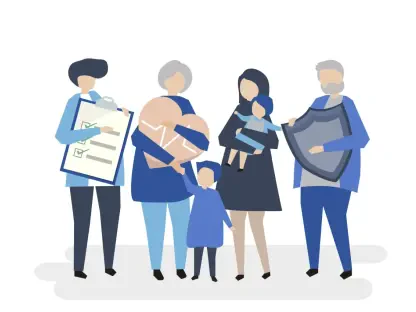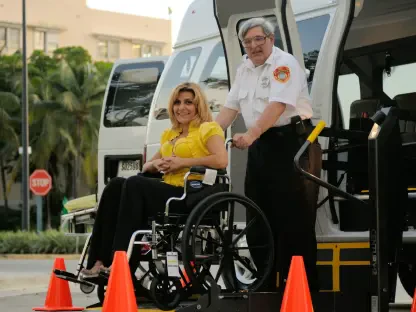With a detailed understanding of the intersection between policy changes and public health, James Maitland guides us through a crucial conversation about the current challenges facing childhood immunizations. His insights shed light on the evolving landscape of vaccine access amid policy shifts, offering thought-provoking perspectives on how these changes might impact families across the nation.
How have your conversations with parents about vaccines changed recently?
Conversations with parents have shifted significantly. There’s a heightened sense of anxiety due to uncertainties around vaccine access, especially for those relying on Medicaid. Parents are now more focused on whether their children will continue to have access to necessary immunizations, which represents a major change from previous concerns that primarily revolved around vaccine safety and scheduling.
What specific concerns are parents of newborns expressing regarding vaccine access?
Parents of newborns are primarily worried about the continued availability of vaccines through Medicaid. There’s an underlying fear that changes in coverage could mean that essential immunizations might suddenly become financially inaccessible, which is particularly troubling for families dependent on Medicaid’s support for their children’s healthcare needs.
How did Robert F. Kennedy Jr.’s appointment as HHS Secretary impact parental concerns about vaccines?
The appointment of Robert F. Kennedy Jr., known for his critical stance on vaccinations, has understandably elevated parental concerns. His influence on key advisory panels has led to uncertainty over which vaccines will remain covered and safe, prompting fears that political shifts could determine health outcomes for their children.
Can you explain the role of the CDC’s Advisory Committee on Immunization Practices (ACIP) and the changes Kennedy made to it?
The CDC’s ACIP plays a crucial role in recommending vaccines for the national immunization schedule, which directly influences Medicaid and the Vaccines for Children Program. Kennedy’s overhaul of this committee by installing new members who align with his ideology has sparked concerns within the medical community, as these changes could alter which vaccines are endorsed and funded.
How might changes in the ACIP affect the coverage of vaccines for children on Medicaid?
Changes to the ACIP could lead to certain vaccines no longer being recommended for coverage. If a vaccine loses ACIP endorsement, Medicaid and other insurers might not cover it, leaving families potentially unable to afford essential immunizations out-of-pocket. This policy change could drastically limit vaccine access for low-income families relying on Medicaid.
What could be the potential consequences for families if support for a particular vaccine is withdrawn by the new ACIP members?
If support is withdrawn, families might face difficult financial and health decisions. Without coverage, vaccines would be expensive, discouraging many from obtaining them. This could lower vaccination rates, increase community vulnerability to preventable diseases, and ultimately endanger public health, particularly among those who cannot afford alternatives.
How are health insurance companies reacting to the possibility of changes in vaccine coverage?
Health insurance companies are currently navigating uncertain waters. While they have yet to make formal changes, there’s potential that they might follow federal guidelines concerning non-ACIP-endorsed vaccines. This uncertainty keeps all stakeholders on edge, as insurers balance federal requirements with their business practices.
What are your concerns regarding the future availability of vaccines to children if Medicaid funding is reduced?
A reduction in Medicaid funding raises grave concerns about sustaining current vaccination levels. Less funding might force states to prioritize resources differently, potentially leading to coverage gaps. It’s crucial for both patient health and public safety that we maintain stable vaccine access, irrespective of fluctuating financial scenarios.
How might states address funding issues if federal Medicaid support decreases?
States could respond in various ways, such as reallocating funds from other programs or increasing taxes to bridge the gap. However, these measures might not be uniform, resulting in disparities across different states. This patchwork approach could undermine national vaccination efforts, amplifying risks in areas with reduced support.
Why are parents concerned about the potential restrictions or elimination of vaccine coverage?
Parents are worried because restricted coverage leads to financial strain and tough choices about their children’s health. With each vaccine being crucial in preventing serious diseases, the prospect of losing coverage means confronting preventable health risks that were previously controlled, fostering an uncertain future.
How has the recent measles outbreak highlighted the importance of maintaining high vaccination rates?
The measles outbreak underscores the vital role of vaccines in safeguarding public health. Low vaccination rates provide opportunities for diseases to spread rapidly within communities, reversing decades of progress. This reinforces the urgent need to ensure vaccines are accessible and mandates remain strong.
What adjustments are pediatricians like yourself making in response to parents’ growing concerns about vaccine access?
Pediatricians are responding by intensifying communication, urging parents to vaccinate their children at the earliest eligibility. We’re working to address concerns head-on, offering proactive scheduling and reassurance about vaccine safety and necessity to allay fears and encourage timely immunization.
Could you elaborate on the potential impact of decreased vaccination rates on public health, especially for diseases like pertussis and measles?
Decreased vaccination rates can lead to outbreaks of contagious diseases such as pertussis and measles. These illnesses, once deemed rare, can result in severe complications and deaths, especially among vulnerable populations like infants or those with weakened immune systems, emphasizing the need to uphold robust vaccination practices.
How are you advising parents who are worried about the timing and eligibility of vaccines like the HPV shot?
We’re advising parents to adhere to the recommended vaccination schedules closely. While early administration of certain vaccines like HPV might not be permissible, we ensure that parents understand the importance of commencing the series as soon as their child becomes eligible to avoid any gaps in protection.
What are your thoughts on the current and future landscape of vaccine coverage and access in light of recent policy changes?
The current landscape appears precarious, shaped by shifting political priorities and financial constraints. Going forward, sustaining vaccine accessibility will require cohesive effort among policymakers, health providers, and communities. Vigilance and advocacy are essential to protect equitable access and maintain public health standards.
What can parents do to ensure their children receive necessary vaccines amidst these uncertainties?
Parents should prioritize maintaining an open dialogue with their healthcare providers and stay informed about changes in vaccine policies and coverage. Scheduling timely vaccination appointments, exploring state resources, and advocating for policy transparency will help safeguard their children’s health in these challenging times.
How are you preparing for the upcoming public meeting of the newly appointed vaccine advisory committee?
Preparation involves staying updated on policy discussions, engaging with colleagues to formulate unified stances that advocate for public health, and preparing to voice the concerns of the pediatric community. Engaging actively ensures that the committee recognizes the vital importance of maintaining comprehensive vaccine access for all children.
Are there any actions that pediatricians or public health professionals are taking to address these challenges head-on?
Pediatricians and public health professionals are mobilizing by rallying support among medical organizations to advocate for vaccine access. Educational campaigns aim to equip parents with accurate information, while lobbying efforts focus on influencing policymakers to uphold robust immunization support through Medicaid and related programs.









